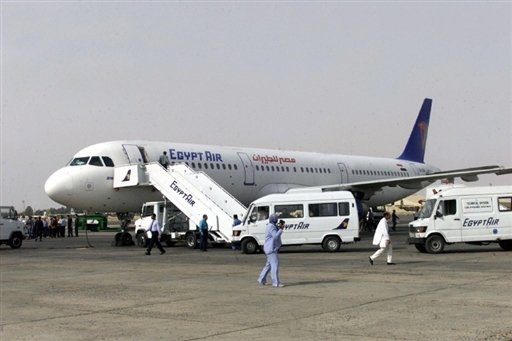DUBAI/CAIRO: Egypt’s index ended down 0.9 percent, a day after it reached a post-revolution high, with traders saying foreigners have been selling and a new trigger is required to push the market into higher territory.
"We just need a catalyst, whether it’s global, regional or local" said Mohamed Radwan, head of equities at Pharos Securities.
Among those possible catalysts, he said, were a parliamentary confidence vote on Greece’s government, the possible inclusion of the United Arab Emirates in an MSCI index and, news on foreign financial aid inflows to Egypt.
Wael Enaba, managing director at portfolio manager Al-Awael, agreed, saying: "Breaking 5,600 points needs incentives — whether mergers and acquisitions or economic news… I expect we will not go below 5,500 points."
Middle East investors and other foreigners were net sellers on Tuesday, traders said.
All but three stocks on the index fell. Ezz Steel slipped 3.1 percent and Citadel Capital lost 2.8 percent.
The Saudi bourse bounced back on Tuesday, tracking oil and gains in global shares, while Abu Dhabi Commercial Bank fell after a report warned the lender’s earnings could be diluted this year.
The Saudi index gained 1.4 percent, snapping a five-session losing streak, while most regional markets fell.
World stocks rose on Tuesday as expectations that the euro zone will avoid a messy default of Greek sovereign debt attracted investors back into risky assets.
"People were looking for any reason to buy back in — crude is up significantly which is helping and people are relatively optimist on Q2 numbers," said a Riyadh-based fund-manager who asked not to be identified.
Only six Saudi stocks fell, as bellwether Saudi Basic Industries Corp gained 2 percent, Al-Rajhi Bank climbed 1.4 percent and Saudi Kayan Petrochemicals rose 1.9 percent.
Oil rose on Tuesday from a dive to a four-month low in the previous session.
Abu Dhabi Commercial Bank fell 4.1 percent, dragging the index 0.9 percent lower after researcher AlembicHC said the lender’s sale of its 25 percent stake in Malaysia’s RHB Capital would hit its profit.
"Without RHB, ADCB would have made a loss in 2010. We estimate a forfeiture of 39 percent of earnings in 2011, 34 percent in 2012, 24 percent in 2013, and 19 percent in 2014," AlembicHC said in a note.
Dubai’s index ended 0.4 percent higher as bluechips recovered. Traders said the market was oversold on Monday after Goldman Sachs downgraded UAE banks.
Emaar Properties gained 1.9 percent and Dubai Financial Market rose 3.2 percent.
Arabtec climbed 1.5 percent after saying it would not reverse provisions in 2011 and had no immediate plans to issue a shelved $150 million convertible bond.
UAE and Qatar’s markets will open on Wednesday for their first trading session after index compiler MSCI announces its decision later on Tuesday on whether it will upgrade the two countries to emerging market status.


